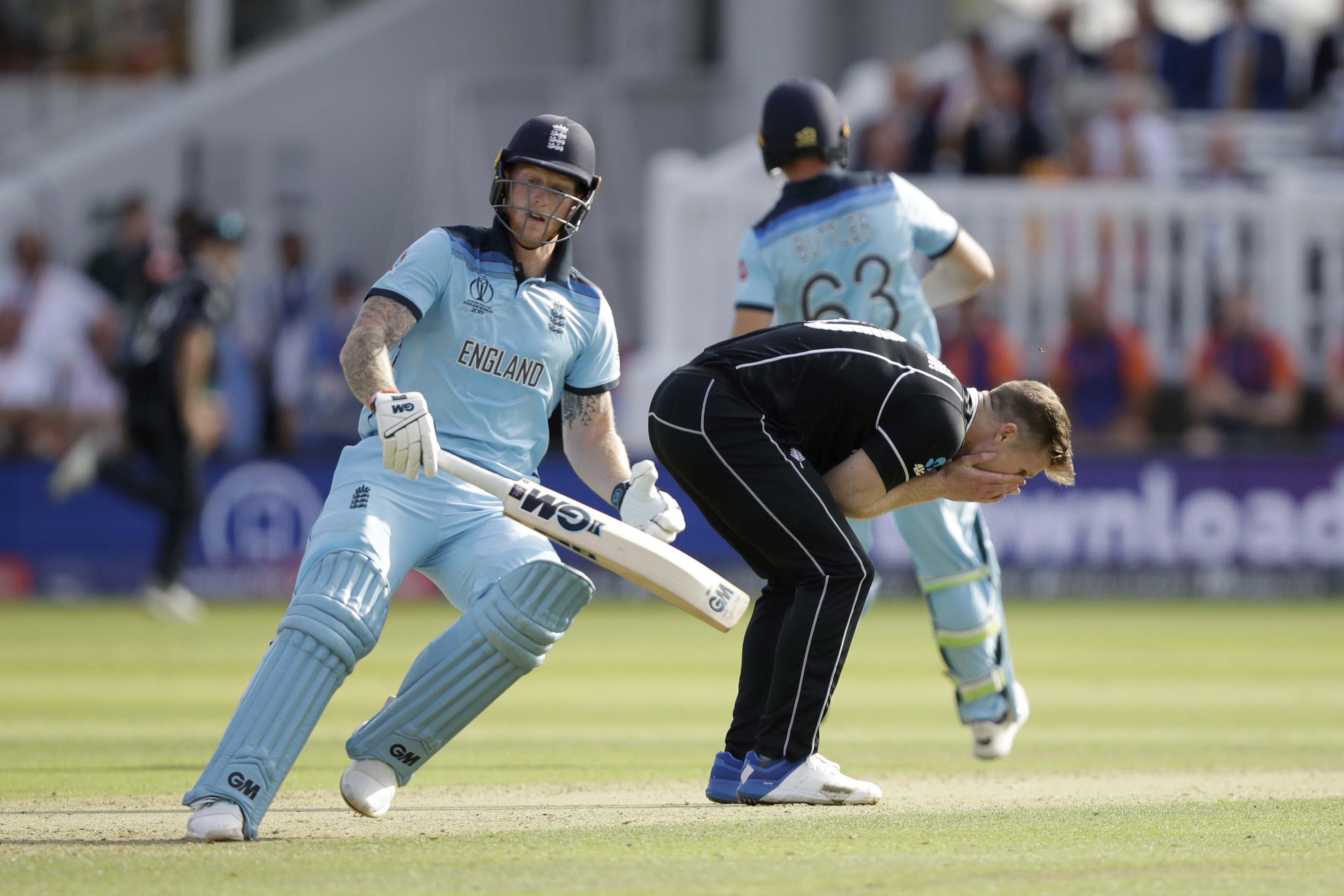
"Error of judgement" from umpires on 6 overthrows, ICC refuse to comment

Former international umpires Simon Taufel and K Hariharan, on Monday (July 15), said officials standing in the World Cup final erred in awarding six runs, instead of five, to England for an overthrow, an observation that the ICC refused to comment on.
Luck smiled on England midway through the final over of their innings when a throw from New Zealand fielder Martin Guptill deflected off the bat of Stokes and ran to the boundary. England tied the match and the ensuing Super Over before winning on boundary count on Sunday.
Sri Lanka’s Kumar Dharmasena and South African Marius Erasmus were the on-field umpires for the pulsating game in which England were chasing 242 in the regulation 50 overs. “It’s a clear mistake.. its an error of judgment. They (England) should have been awarded five runs, not six,” Taufel, a five-time ICC Umpire of the Year, told foxsports.com.au.
Also read: Cricketers, Kiwis supporters slam ICC rule of counting boundaries to break ties
Echoing Taufel’s view was former Indian umpire K Hariharan. “Kumar Dharmasena killed the World Cup for New Zealand. It should have been five runs, not six,” he told PTI.
The ICC refused to make a comment with a spokesperson simply saying, “The umpires take decisions in the field of play with their interpretations of the rules and we don’t comment on any decisions as a matter of policy.”
Law 19.8 of the ICC rules, pertaining to Overthrow or wilful act of fielder, states: “If the boundary results from an overthrow or from the willful act of a fielder, the runs scored shall be any runs for penalties awarded to either side, and the allowance for the boundary, and the runs completed by the batsmen, together with the run in progress if they had already crossed at the instant of the throw or act.”
“The umpires needed to check if at the point of throw the two batsmen had crossed each other or not. If we see that replay, when the throw came, the two batsmen had barely started the second run,” Hariharan observed.
“That run can never be counted. It was the duty of square leg umpire (Marius) Erasmus to consult the TV umpire and change the decision. Stokes shouldn’t have been on strike next ball,” he added.
Taufel, a highly-regarded ex-Australian umpire, is now a part of the MCCs laws sub-committee that makes the rules governing cricket. The bizarre incident took place in the fourth ball of the final over at the Lords.
TV replays showed Adil Rashid and Stokes had not yet crossed for their second run when Guptill released the ball from the deep. However, on-field umpires Kumar Dharmasena and Marais Erasmus added six runs to England total following the incident – four runs for the ball reaching the boundary plus two for running between the wickets by the batsmen.
Taufel also defended the officials. “In the heat of what was going on, they thought there was a good chance the batsmen had crossed at the instant of the throw,” Taufel said. “Obviously TV replays showed otherwise. The difficulty you (umpires) have here is you’ve got to watch batsmen completing runs, then change focus and watch for the ball being picked up, and watch for the release (of the throw),” Taufel said.
“You also have to watch where the batsmen are at that exact moment.” He acknowledged the call “influenced the game” but added, “It’s unfair on England, New Zealand and the umpires involved to say it decided the outcome”.

